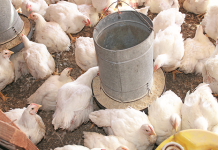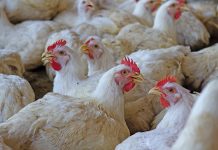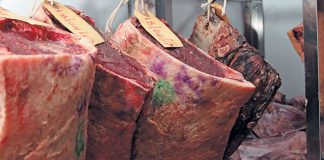At long last, the Department of Rural Development and Land Reform seems to be doing something about the land audit. A few weeks ago, it announced that the audit would be completed by December; just a few loose ends needed to be tied up. In addition, Cabinet approved the establishment of the Office of the Land Valuer-General.
Given this progress, it is astonishing how intransigent government remains about title deeds: it is simply refusing to give them to farmers, even though many clearly deserve to own the land they work, having been successful producers for years. The problem is that government is punishing them for its own mistakes. According to Minister Gugile Nkwinti, farmers are not given title deeds because they will use their farms as surety and these are therefore in danger of being repossessed.
Isn’t that what getting credit is all about, or am I missing something? Alternatively says government, some farmers will end up selling the land. Well, it is understandable perhaps that the minister would be concerned; these problems have occurred before. Some farmers have been, or were almost, repossessed by banks. But a blanket solution to solve a problem sparked by the very same department is simply unfair, especially on people who have worked hard to keep their farms going.
Government started this whole mess by giving farms to the wrong people, mostly politically connected types who knew nothing about farming. The farms went with hefty financial support, most of which was used to buy luxury cars and renovate homes, not enhance production on farms. As soon as the money was gone, these ‘farmers’ packed their bags and left. Now, instead of admitting its mistakes, government is once again offering uninformed solutions which will waste more public funds.
When people do not own land, there is little they can do to fund their farming operations. No bank will give them money. “Yes, we know that,” says government. “Our solution is to foot the bill with public funds.” This is through the recapitalisation programme and comprehensive agricultural support programme (CASP). There have been numerous projects of this sort since 1994, with billions of rands dished out year by year – and precious little to show for it.
We don’t even have information on small-scale farmers’ contribution to South Africa’s total food production! This would at least help to measure how effective government has been in terms of development. I remain unconvinced by Nkwinti that real farmers would sell back the land. Farming is not like any other career; it runs in the blood. I do not believe, for example, that Malekaleke Maila, a communal land Pedi sheep farmer from Ga-Maila in Limpopo, Abram Motlhabane, a Bonsmara breeder recently thrown off a farm he was leasing, or Gideon Morule, a Nguni cattle farmer in Mahikeng who has been leasing a farm for over 30 years, would ever sell back the land.
Refusing to give title deeds to farmers is a pathetically short-sighted solution. It will mean that government has to spend millions and millions of rands on bailing out farmers who run into financial trouble. The only way to create a thriving small-scale farming sector that provides employment and food security is to find the Mailas and the Motlhabanes and the Morules, and put them on the land.
Through this, government will save the country billions of rands – because here are people with a proven passion for farming and a history of excellence and achievement in the sector. And all they are asking for is the opportunity to work on land that genuinely belongs to them, and that they can improve and develop according to their farming skills, not leased land that prevents them from reaching their full potential.













